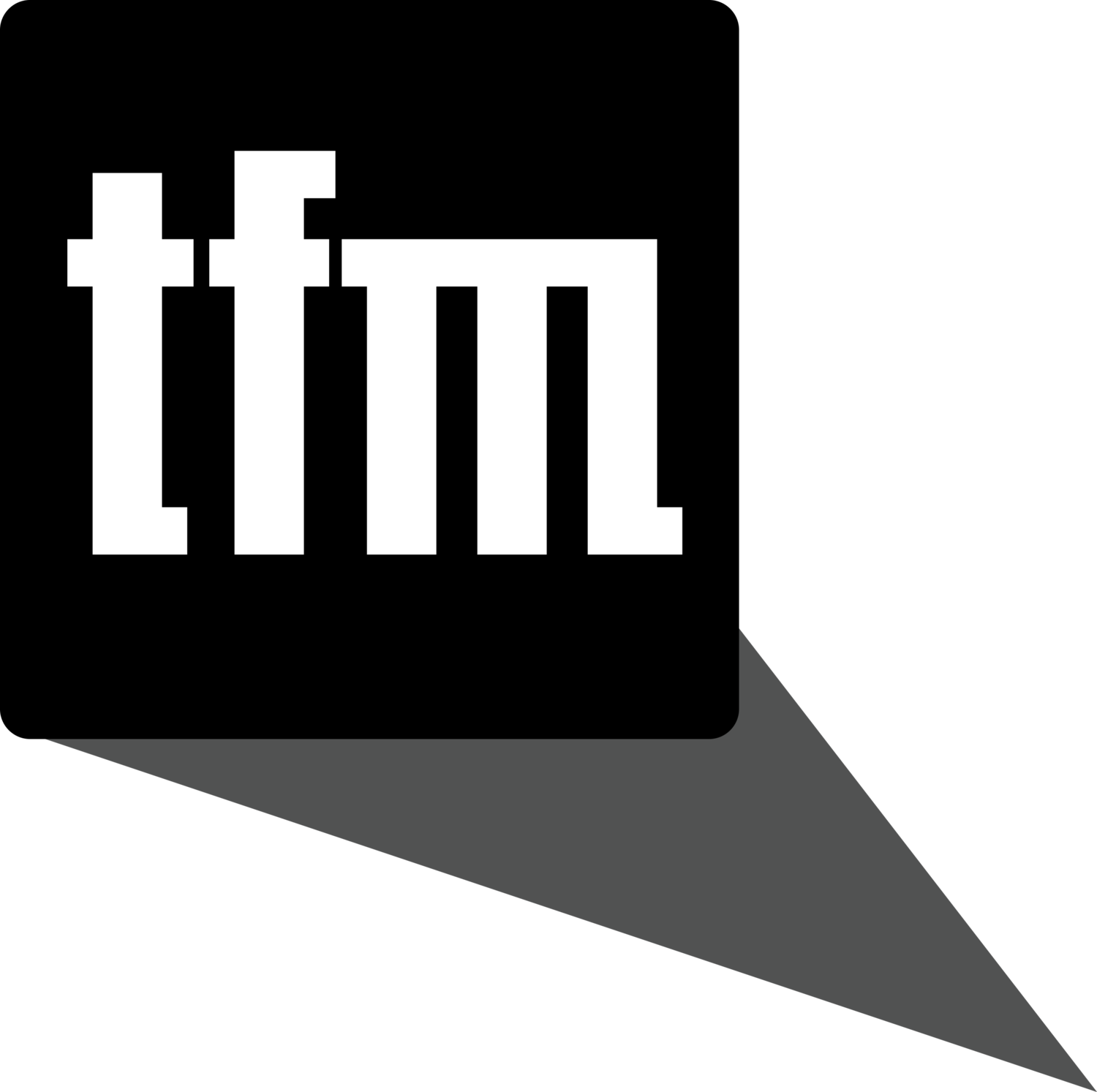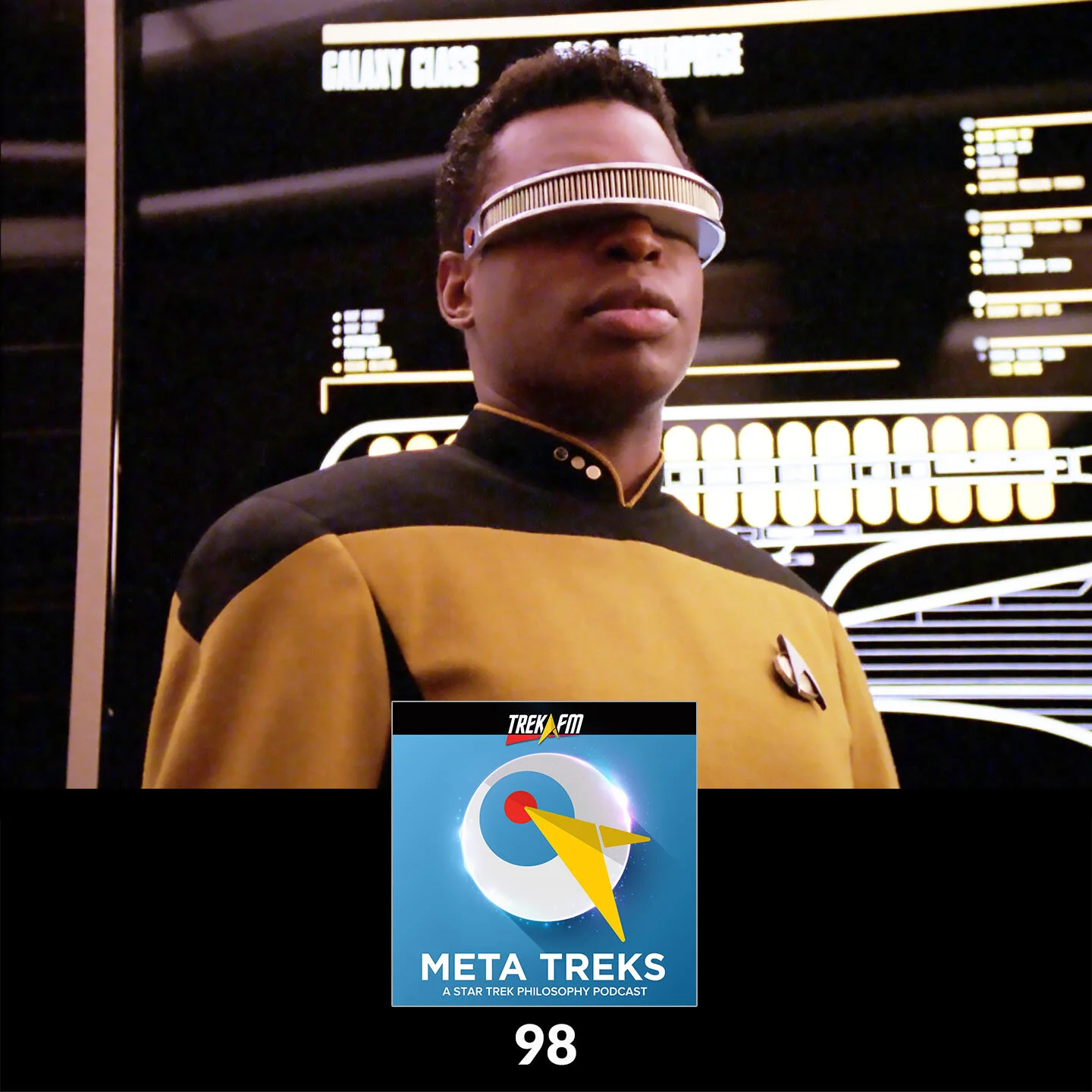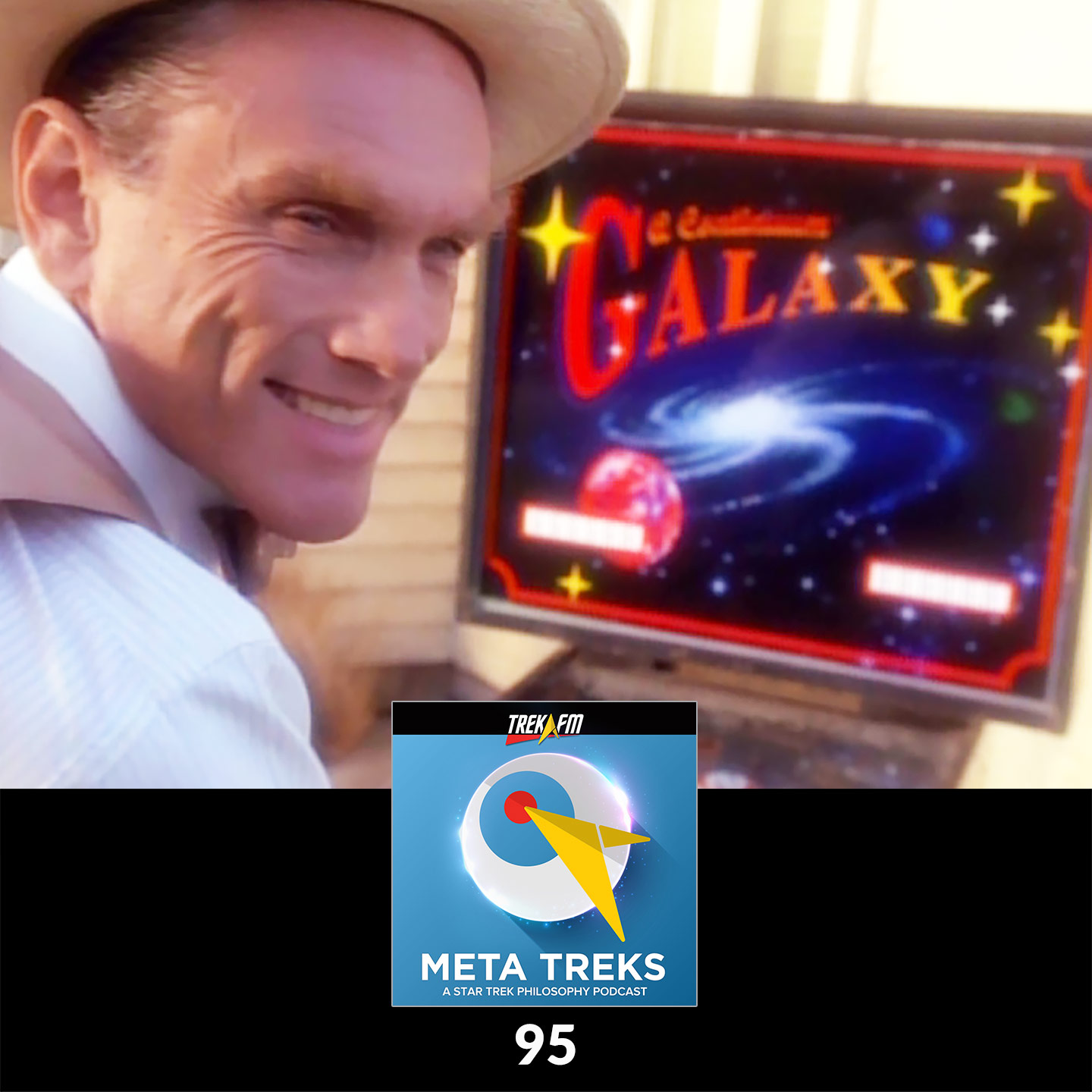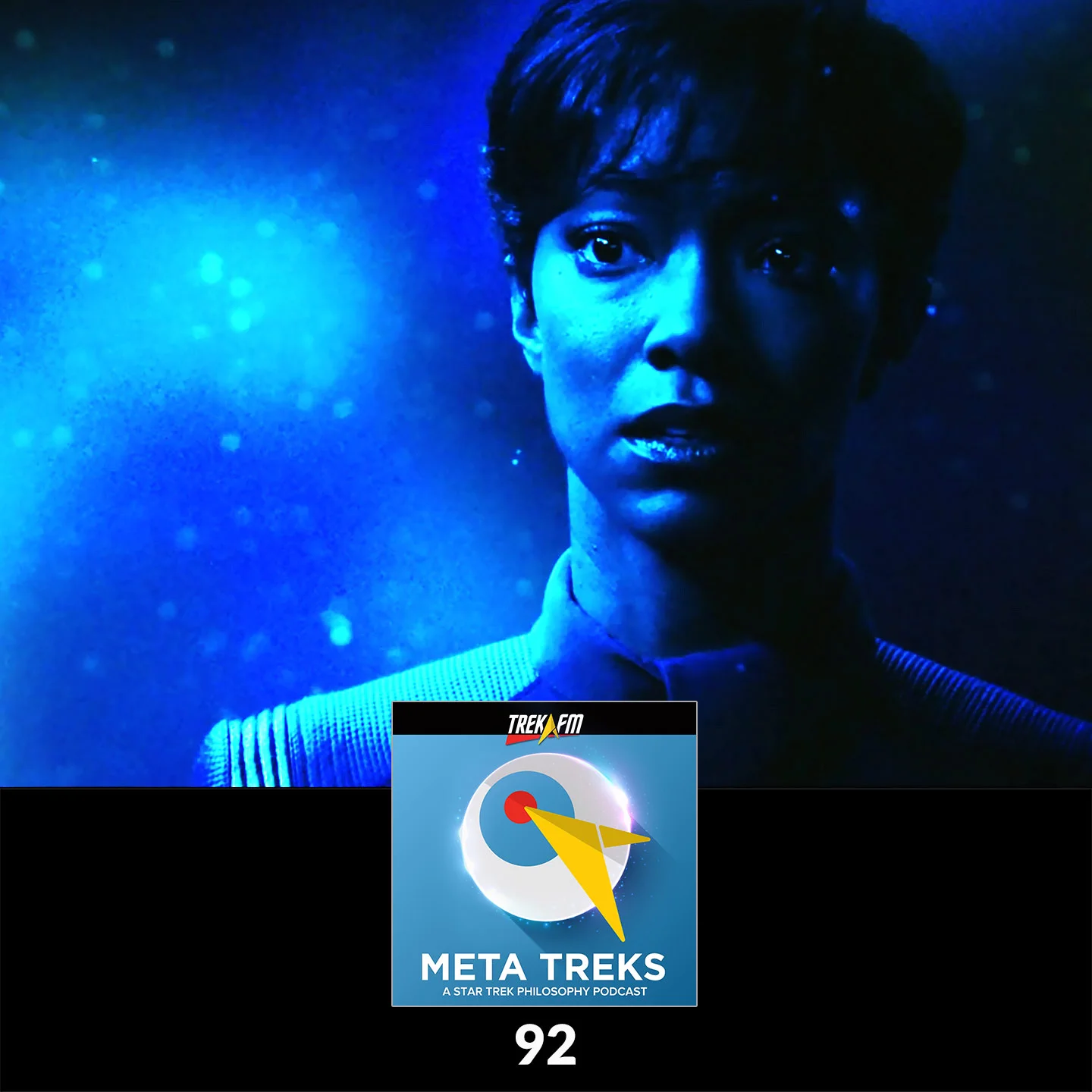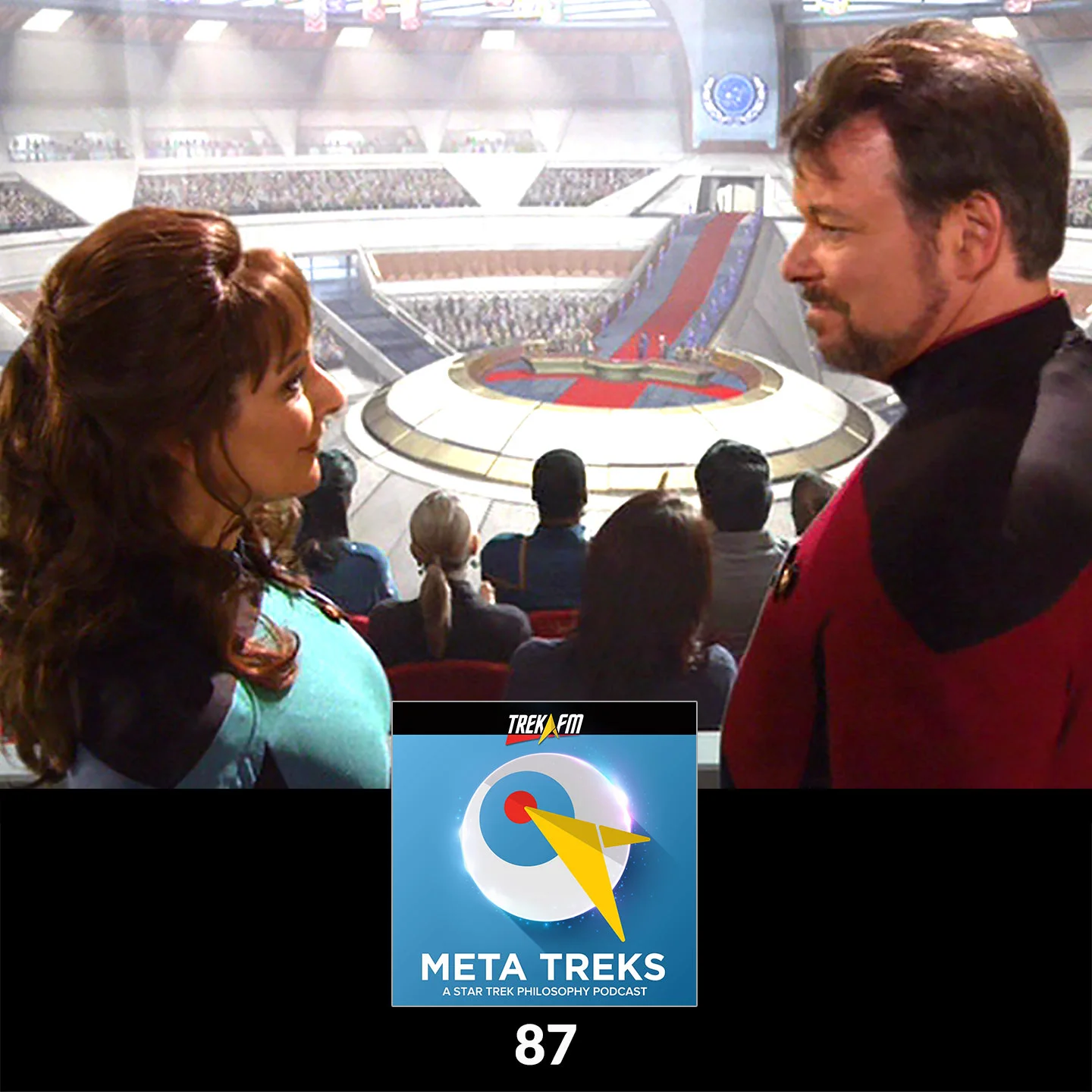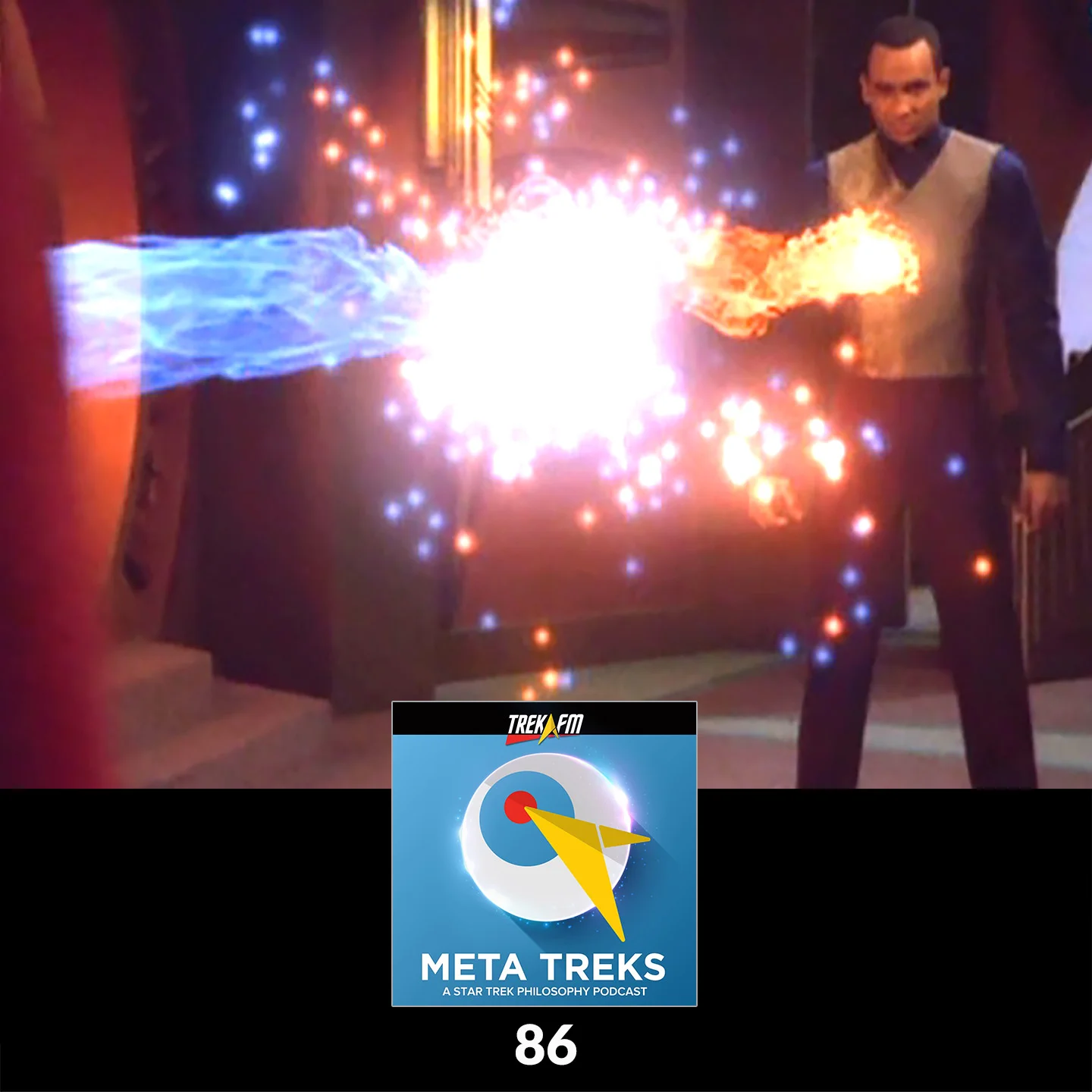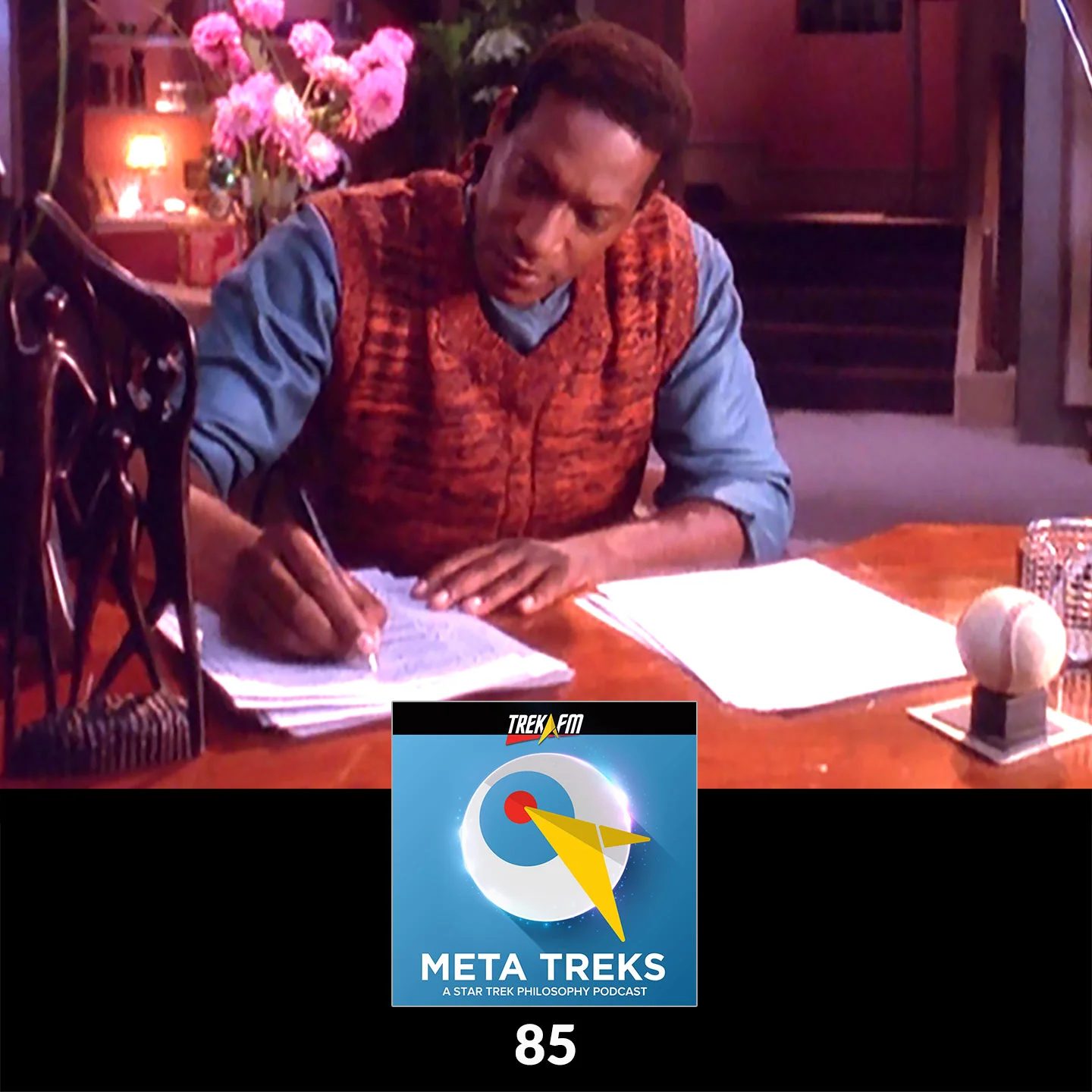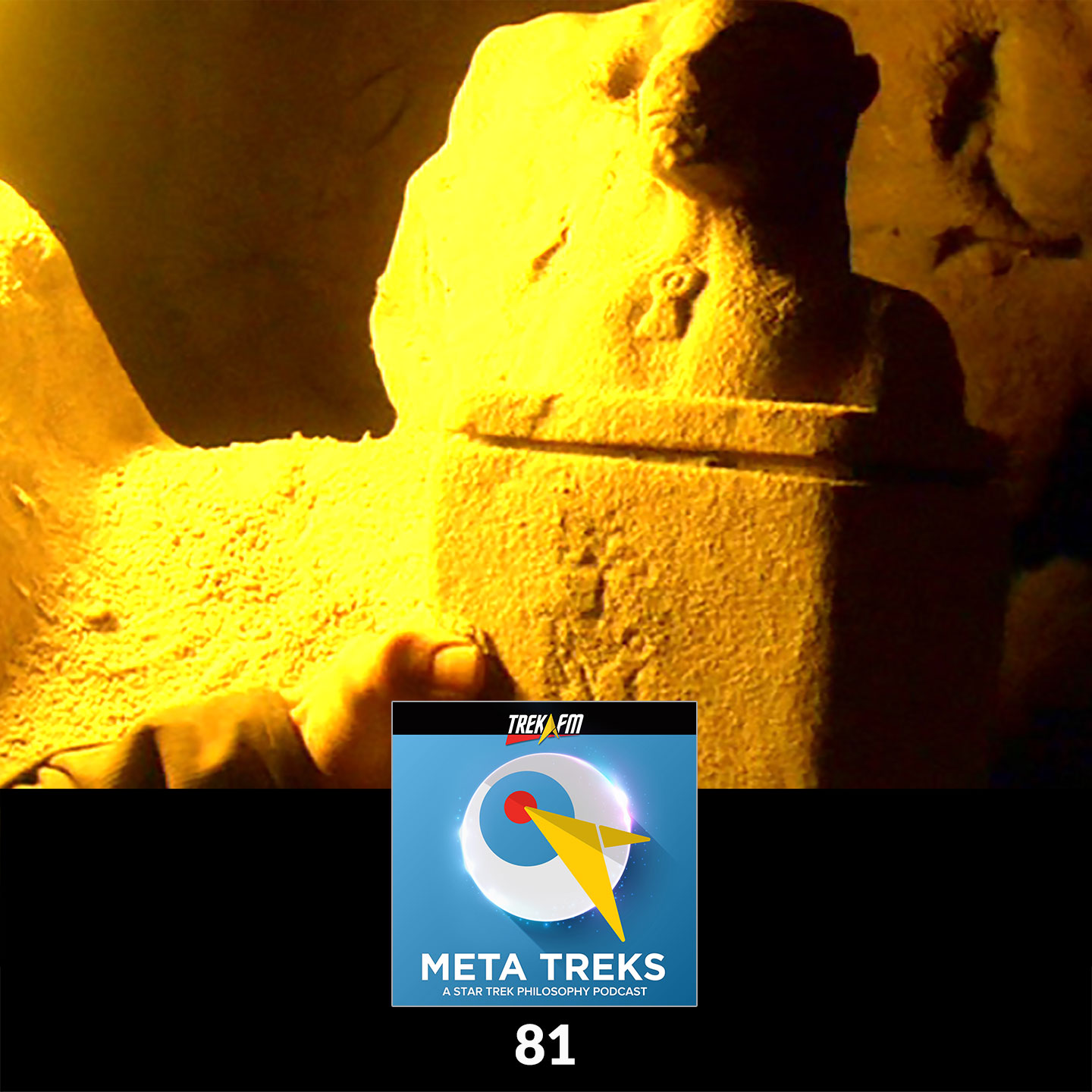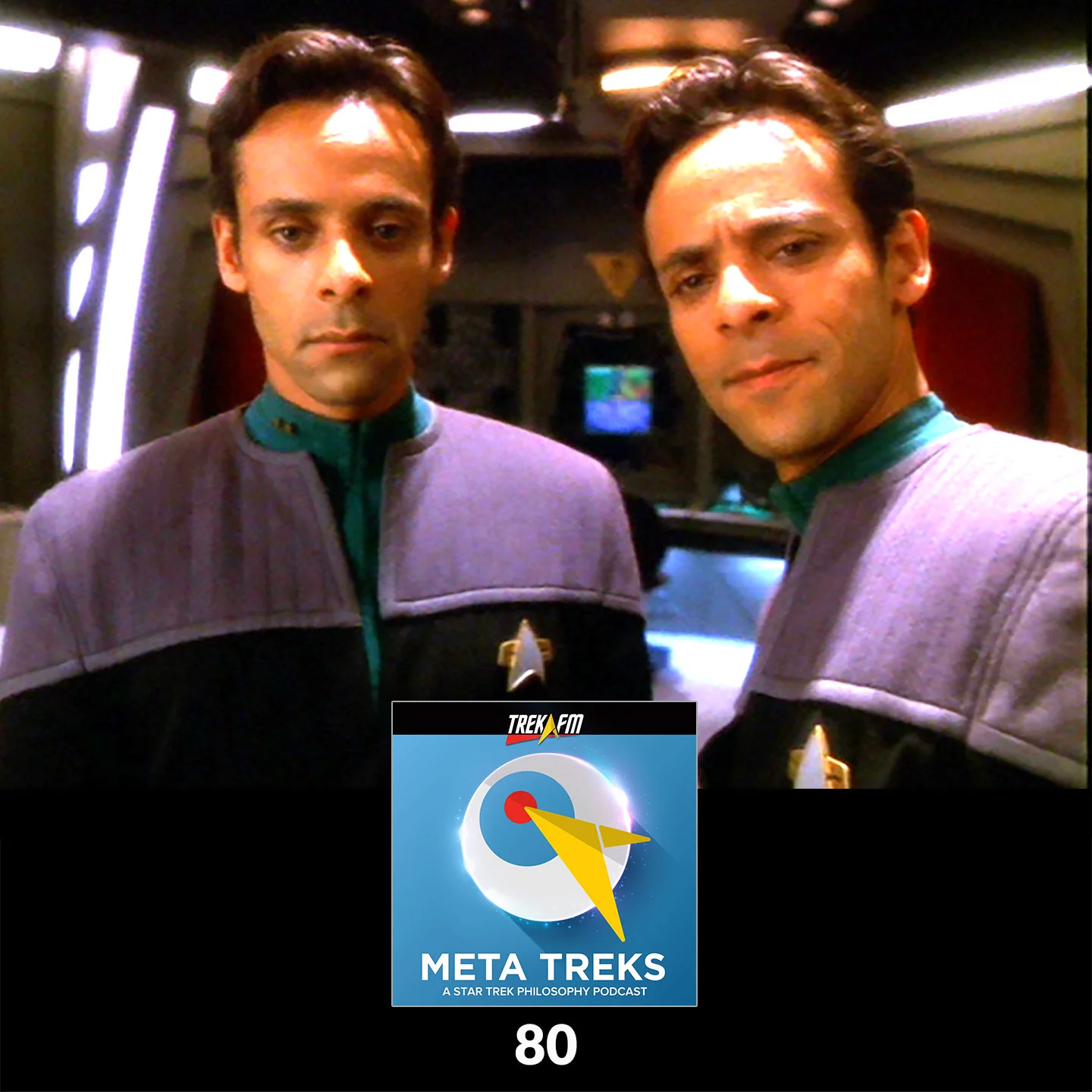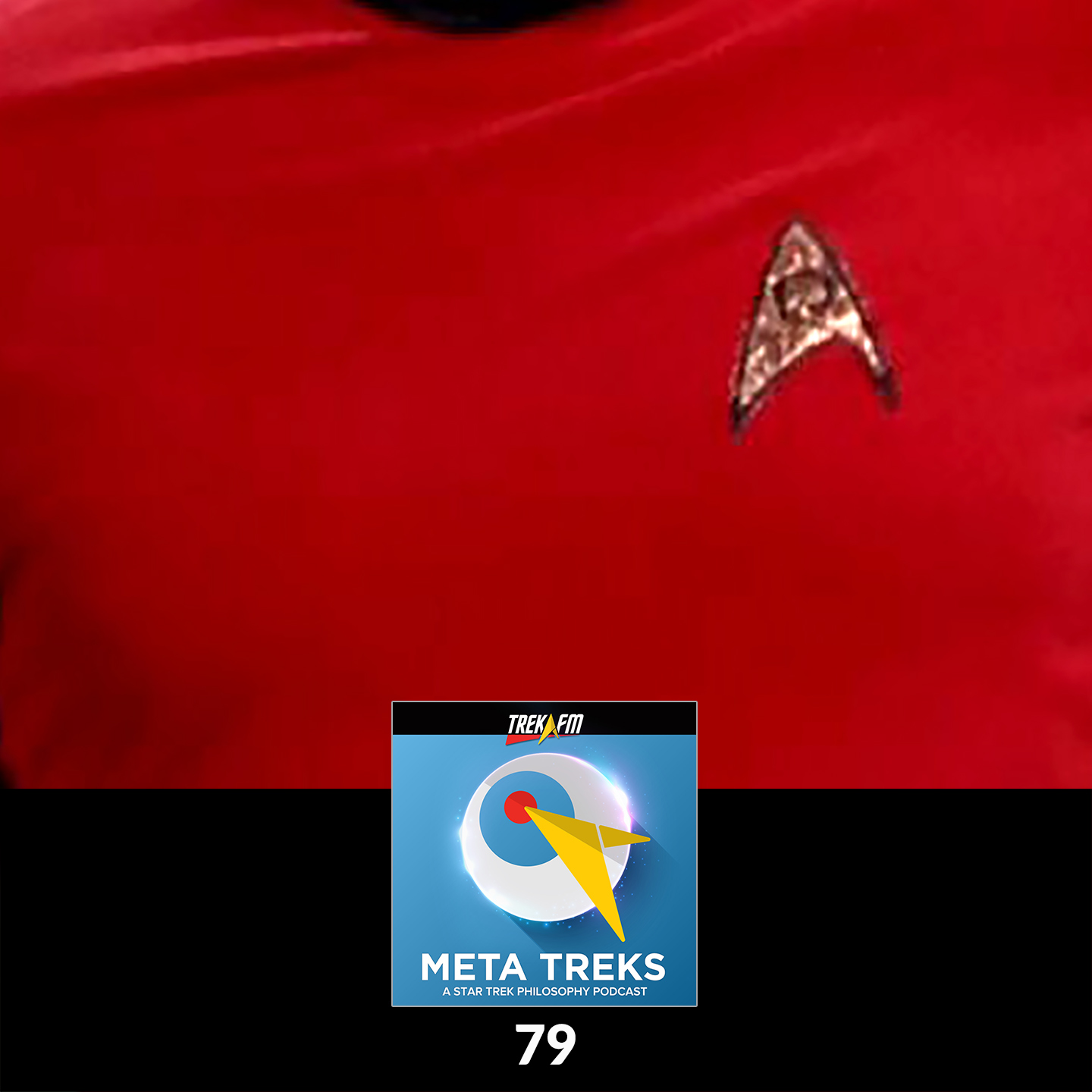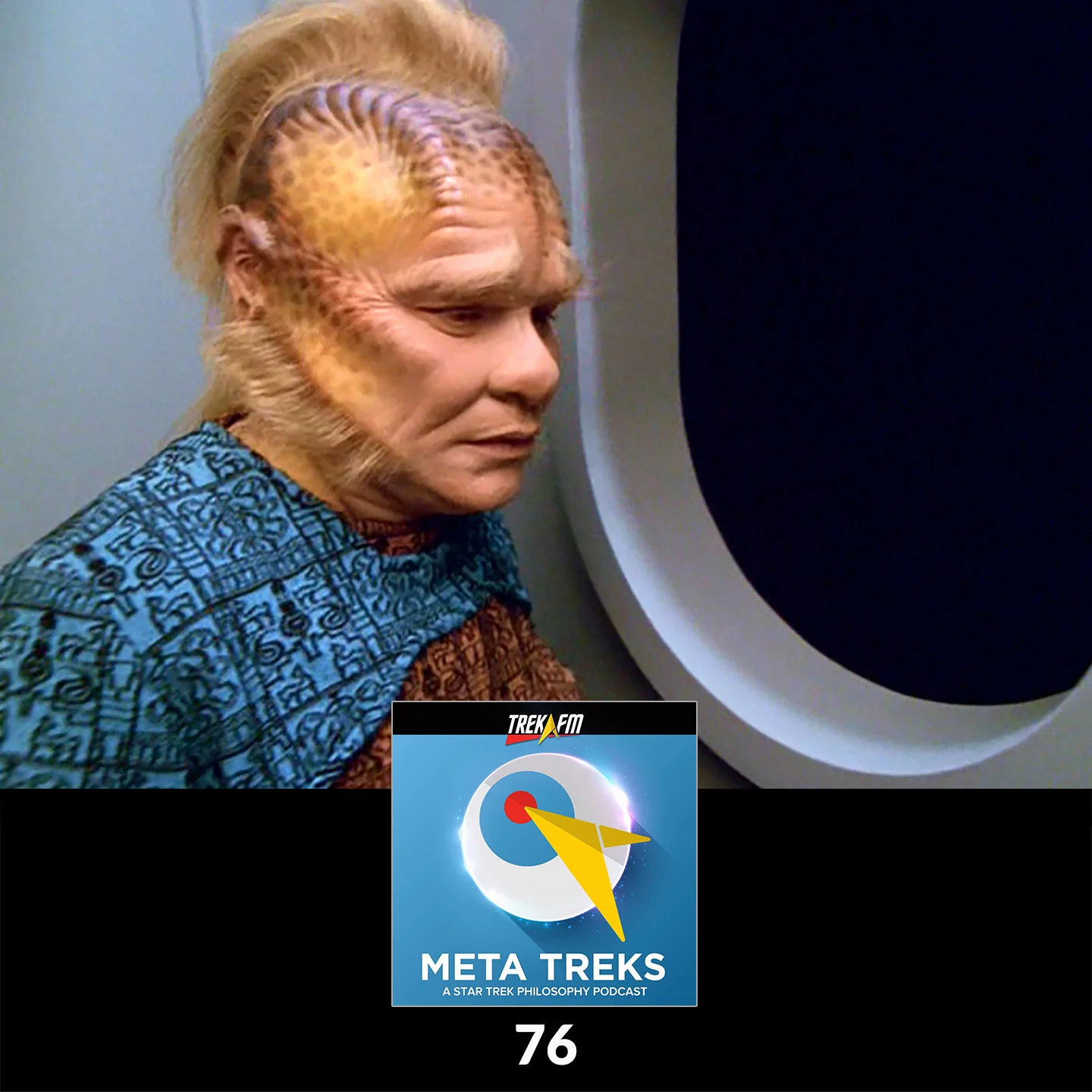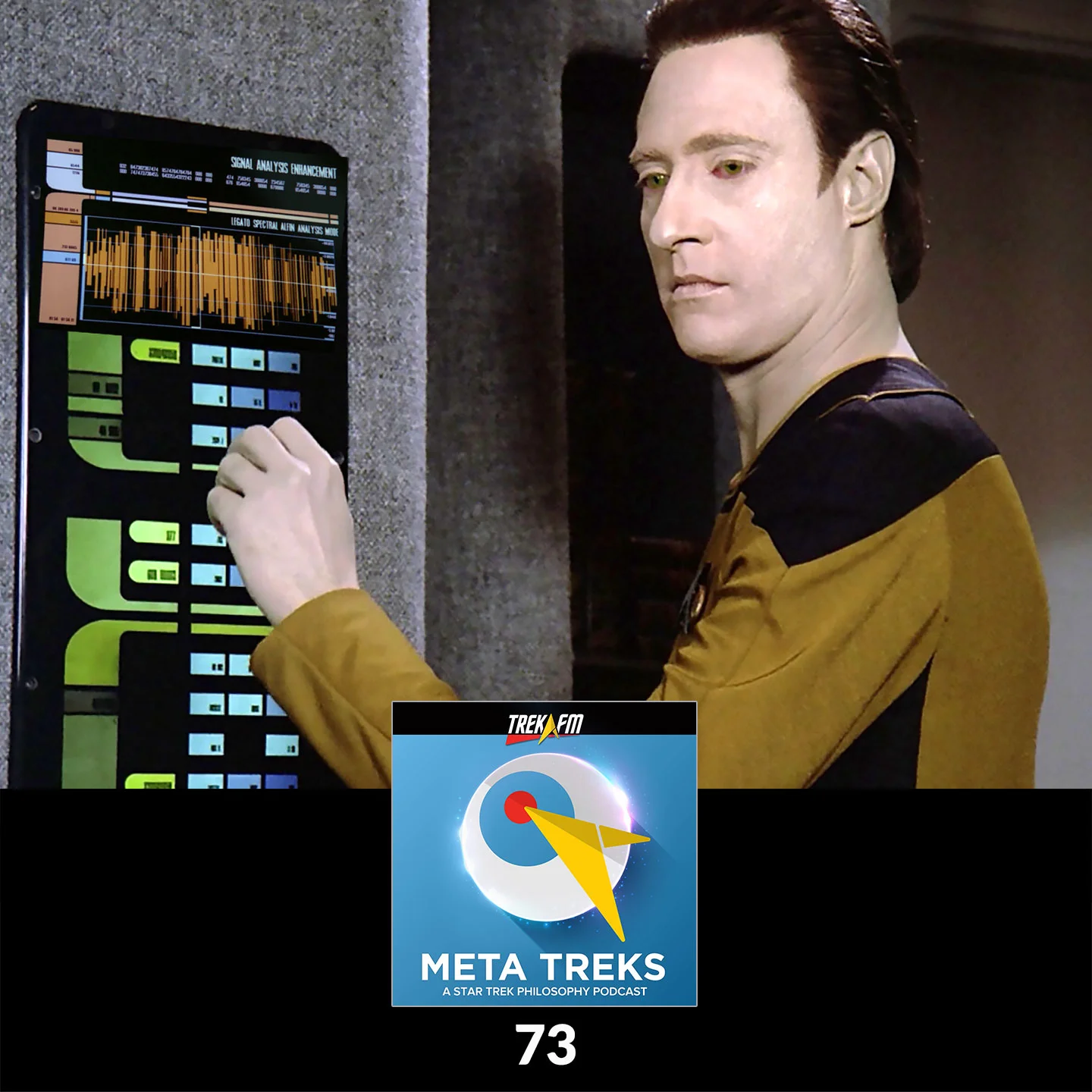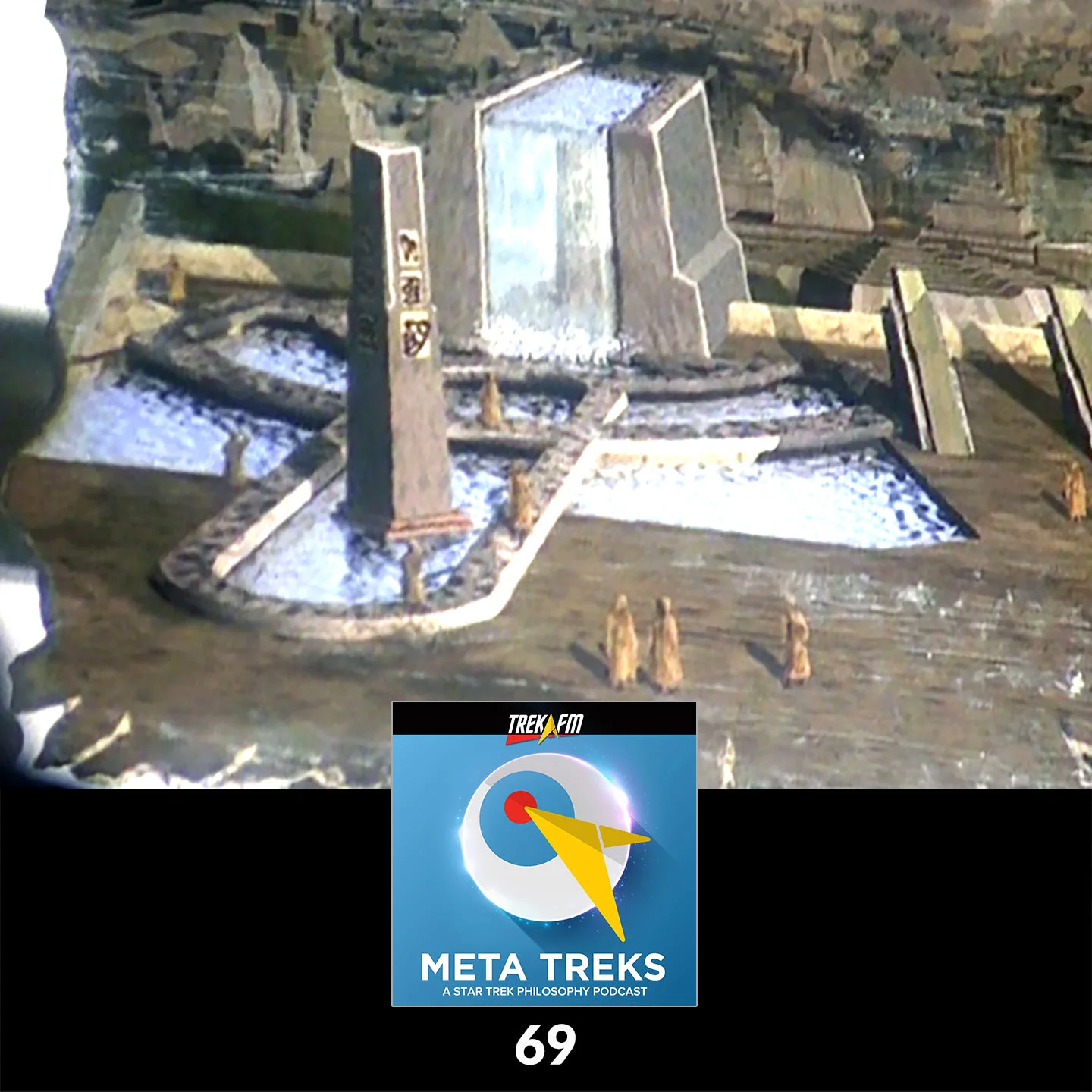Media Ecology with Dennis Castello.

Running Time: 1 hour 28 minutes 46 seconds
Download / RSS / Send us a message / Discuss the show / Support Trek.fm
In the 24th century, is the holodeck the primary mode of media creation and consumption? And if so, what effect does the holographic medium have on Federation society as a whole? In this episode, Meta Treks editor and producer Dennis Castello joins hosts Zachary Fruhling and Mike Morrison behind the microphone to discuss the sociological sub-discipline of media ecology.
Media ecology holds that the different types of media a society consumes influence the behavior of society as a whole. This core idea of media ecology is summed up with the phrase, "The medium is the message." Dennis Castello provides an overview of media ecology and its core concepts, followed by a discussion about the role media ecology can play in analyzing different types of media within the Star Trek universe.
Chapters
Welcome to Episode 17 (00:01:08)
Introducing Dennis Castello (00:01:44)
Media Ecology - The Medium is the Message (00:05:00)
Changing Media Over Time (00:06:54)
Type of Media - Slow vs. Fast Media (00:08:57)
Societal Trend Towards Faster Media (00:12:41)
Content Consumers and Content Creators (00:14:33)
Cycles of Media Technology - Creativity vs. Norms (00:16:18)
Media Ecology and Photography (00:21:40)
Primary Orality vs. Alphabetic Societies and Abstract Thought (00:27:08)
Is Media Ecology Normative or Descriptive? (00:30:19)
Criticisms of Media Ecology - Technological Determinism (00:33:47)
Changing Media - Political Discourse and Star Trek Discussion (00:35:34)
Media Ecology Inside and Outside the Star Trek Universe (00:44:47)
Holography as the Federation's Dominant Medium (00:46:36)
23rd Century Dashcam? (00:56:22)
"Photons Be Free" and Holographic Rights (01:07:37)
Final Thoughts (01:12:14)
Hosts
Zachary Fruhling and Mike Morrison
Guest
Dennis Castello
Production
Dennis Castello (Editor and Producer) Norman C. Lao (Executive Producer) C Bryan Jones (Executive Producer) Matthew Rushing (Executive Producer) Charlynn Schmiedt (Executive Producer) Will Nguyen (Content Manager) Richard Marquez (Production Manager)
Gnosticism, Esotericism, and Secrecy in Star Trek. We explore the many forms of secret and forbidden knowledge, esoteric cultural practices, and hush-hush political agendas in the Star Trek universe.
Philosophical Themes in Star Trek: Picard, Season 1. We explore an impressive list of philosophical themes and concepts in the first season of the recently completed first season of Star Trek: Picard.
Enterprise Season 1 - Essential Trek Philosophy. We discuss the overarching themes and our top choices for Essential Trek Philosophy from Star Trek: Enterprise, Season 1.
Death Wish. We discuss the philosophical themes in the second-season Voyager episode "Death Wish," the question of meaning as it relates to death and immortality in the Q Continuum, and "Death Wish" as a well-developed example of Nietzschean philosophy.
Utopianism in Star Trek. We discuss the optimistic vision of the future depicted in the Star Trek universe, the dark side of utopianism, and whether Star Trek should be seen as a modern-day take on a futuristic Plato's Republic.
Alternate Universes and Modal Realism. We discuss modal realism, the philosophical view that alternate universes or "possible worlds" really exist, through the lens of Star Trek.
Discovery Season 1 - Essential Trek Philosophy. We discuss the philosophical themes in the first season of Star Trek: Discovery.
Equality and Equal Rights. We discuss the philosophy of equality and equal rights in the United Federation of Planets, from the different senses of equality such as moral equality and equality of opportunity to equal rights for non-humanoid life forms.
The Q Continuum. We give a philosophical analysis of the Q Continuum and the deity-like attributes of the Q.
Philosophical Themes in "The Cage." We discuss the philosophical themes in the unaired pilot episode of Star Trek: The Original Series, including the existential burdens of making choices and being in command, and the nature of human happiness.
The Original Series Season 1 - Essential Trek Philosophy. We discuss our top picks for Essential Trek Philosophy from season 1 of Star Trek: The Original Series.
Philosophical Themes in "These Are the Voyages." We explore themes of historical lessons and conflicting ethical duties in the finale of Star Trek: Enterprise, "These Are the Voyages."
Good vs. Evil in Star Trek. We discuss the nature of evil in the Star Trek universe, including examples of supposedly evil characters such as Armus from "Skin of Evil," the Borg Queen, and the Pah-Wraiths.
The Visitor. We discuss the philosophical themes in the Deep Space Nine episode, "The Visitor," including the relationship between creative writing, lived experience, and what the German philosopher Martin Heidegger called "Being-in-the-World."
TNG Season 5 - Essential Trek Philosophy. We compare our top picks for Essential Trek Philosophy from season 5 of Star Trek: The Next Generation.
The Conscience of the King. We discuss the themes of moral responsibility and personal identity over time in "The Conscience of the King" (Star Trek: The Original Series, Season 1).
Drone Warfare and "The Arsenal of Freedom." We discuss ethical issues related to automated warfare and the commodification of war in "The Arsenal of Freedom" (Star Trek: The Next Generation, Season 1).
Vulcan Katras and the Mind-Body Problem. We give a philosophical analysis of the metaphysics of Vulcan katras in relation to the mind-body problem in philosophy.
Deep Space Nine Season 5 - Essential Trek Philosophy. We compare our choices for Essential Trek Philosophy from season 5 of Star Trek: Deep Space Nine.
The Philosophy of Color in Star Trek. From the physics of light to the physiology of color perception, we discuss the philosophy of color in the Star Trek universe and why exactly the infamous Redshirt uniforms are red.
Philosophical Themes in Star Trek: Discovery, Episodes 1 and 2. Fresh on the heels of the premier of Star Trek: Discovery, we discuss Discovery's 23rd-century social and political commentary on our 21st-century world today.
Property Ownership in *Star Trek*. We discuss the philosophy and economics of property ownership in 24th-century Federation society.
Voyager Season 5 - Essential Trek Philosophy. We discuss ennui (boredom) in the season 5 opener "Night" and our recommendations for Essential Trek Philosophy from Voyager season 5.
Star Trek Philosophy of Education. In this episode of Meta Treks, hosts Zachary Fruhling and Mike Morrison discuss 24th century philosophy of education in Star Trek.
Narratives and Metanarratives in Star Trek. Hosts Mike Morrison and Zachary Fruhling discuss the use of narratives and metanarratives, or the grand unifying narratives, of the Star Trek universe.
Pen Pals. In this episode of Meta Treks, hosts Zachary Fruhling and Mike Morrison discuss the second-season episode of Star Trek: The Next Generation, "Pen Pals," interpreting the Prime Directive, and 24th-century ham radio in space.
Enterprise Season 2 - Essential Trek Philosophy. Hosts Mike Morrison and Zachary Fruhling recount their choices for Essential Trek Philosophy from season 2 of Enterprise, along with proverbial life lessons learned from this season.
Future Human Cultural Evolution with Patrick Devlin. In this episode of Meta Treks, hosts Zachary Fruhling and Mike Morrison are joined by Meta Treks associate producer Patrick Devlin to discuss cultural progression in the Star Trek universe.
Cardassian Virtue Ethics. In this episode of Meta Treks, hosts Mike Morrison and Zachary Fruhling discuss uniquely Cardassian character traits and what we can learn about our own human natures from the Cardassians in the Star Trek universe.
"Rapture" and Altered States of Consciousness. Zachary Fruhling and Mike Morrison discuss ineffable moments of insight and clarity, duck-rabbit Gestalt shifts, the ethics of medical intervention, and the power of positive thinking.
